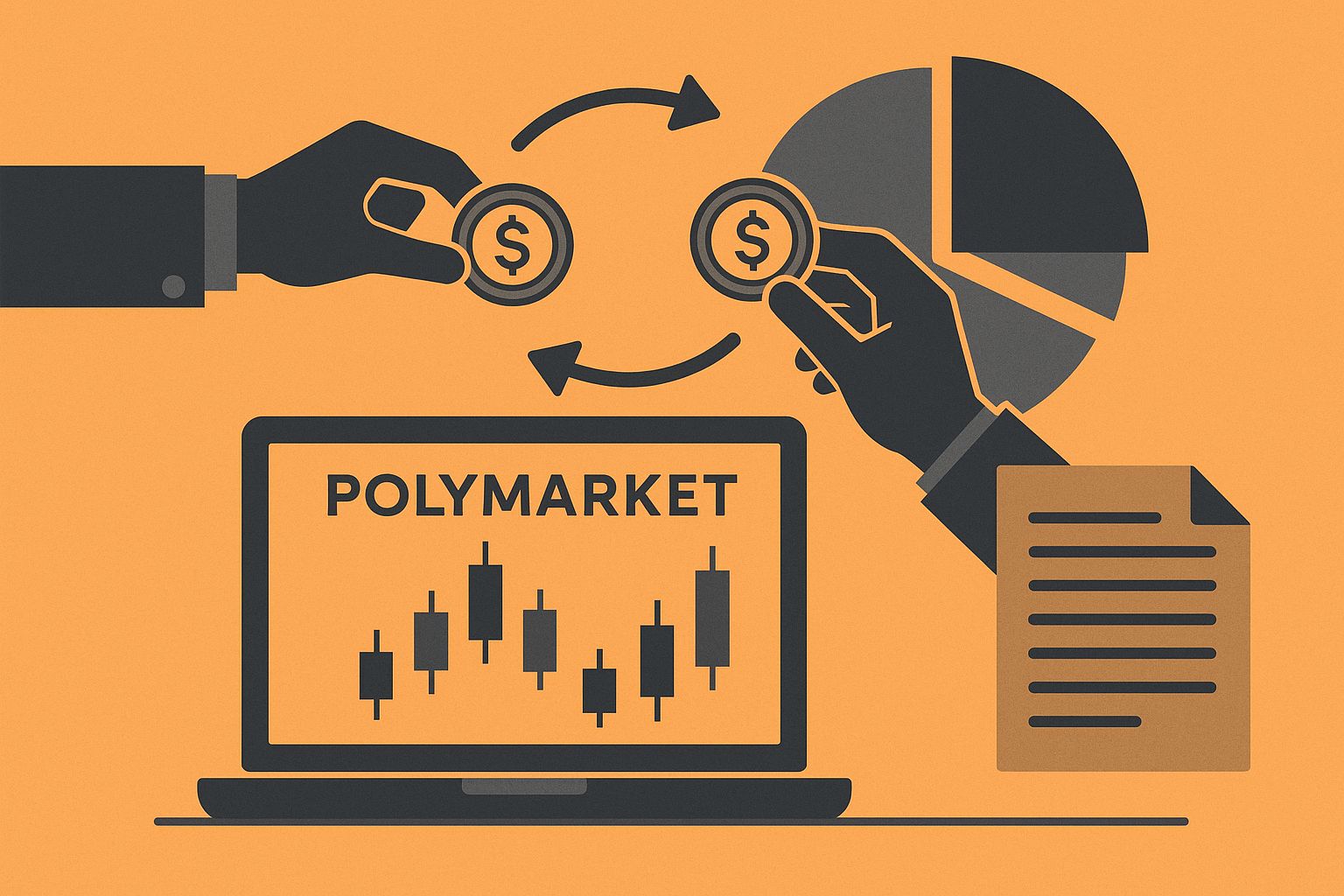
- About 14% of wallets showed behaviour consistent with coordinated wash trading.
- Artificial trading peaked at 60% in December 2023 and dropped to 5% by May.
- ICE plans to invest up to $2 billion as Polymarket prepares for a regulated US return.
A new study by Columbia University researchers has found that nearly a quarter of all trading on Polymarket, one of the world’s leading decentralised prediction platforms, has been artificially inflated by wash trading over the past three years.
Using blockchain analytics, the researchers traced millions of transactions on the Polygon network and found widespread patterns of self-dealing that misrepresented market depth and liquidity.
The findings challenge the perceived transparency of blockchain-based prediction markets and raise deeper questions about how decentralised finance can preserve integrity while operating without traditional oversight mechanisms.
Algorithmic analysis exposes trading manipulation
The research team analysed millions of wallet transactions recorded on the Polygon blockchain, where all Polymarket activity is publicly verifiable.
By designing algorithms to detect repetitive and circular trading patterns, they identified that 14% of the platform’s 1.26 million wallets exhibited behaviour consistent with wash trading.
These accounts repeatedly transacted with each other but rarely interacted with the wider market, indicating self-dealing activity rather than genuine speculation.
According to the study, wash trading accounted for an average of 25% of total Polymarket transactions since 2021.
The frequency of this artificial activity fluctuated over time, peaking at 60% in December 2023 before declining to around 5% in May, only to climb again to roughly 20% by October.
The findings illustrate how easily decentralised markets can be manipulated when transaction costs are negligible and identities pseudonymous.
The authors, including Columbia Business School professors Yash Kanoria and Hongyao Ma, economist Rajiv Sethi of Barnard College, and doctoral student Allen Sirolly, emphasised that their estimates are not definitive.
However, the data suggests a consistent pattern that raises questions about how on-chain markets represent real sentiment and liquidity.
Token speculation may have fuelled artificial activity
While the study did not allege direct involvement by Polymarket itself, it identified structural features that make wash trading possible.
The exchange charges no transaction fees, supports self-custodied crypto wallets, and enables stablecoin settlements, allowing traders to operate multiple pseudonymous accounts without meaningful cost.
The researchers also linked several spikes in artificial volume to rumours of a potential Polymarket token launch.
In decentralised finance, such speculation can drive traders to inflate their activity in hopes of qualifying for “airdrop” rewards when a new token is released.
In early October, Polymarket founder Shayne Coplan posted on social media hinting at a possible token, coinciding with one of the sharp rises in wash trading.
Sirolly noted that authentic trading volumes tended to surge around real-world developments like election polls or sports results, whereas wash trading peaks aligned more closely with token-related rumours.
This suggests that some users were trading not for market insight but for eligibility in prospective reward distributions.
Regulatory context and industry competition
Polymarket, founded in 2020, has become one of the most active blockchain-based prediction platforms, allowing users to bet on political, financial, and cultural outcomes.
Its closest competitor, Kalshi Inc., operates under US regulation but does not run on a blockchain, limiting external scrutiny of its data.
The report’s timing is significant. In 2022, Polymarket reached a $1.4 million settlement with the Commodity Futures Trading Commission (CFTC) for operating an unregistered exchange and subsequently barred US users.
Despite regulatory pressure, Polymarket remains attractive to institutional investors.
Intercontinental Exchange Inc., owner of the New York Stock Exchange, recently signalled plans to invest up to $2 billion in the company, underscoring the mainstream financial world’s growing interest in blockchain prediction markets.




